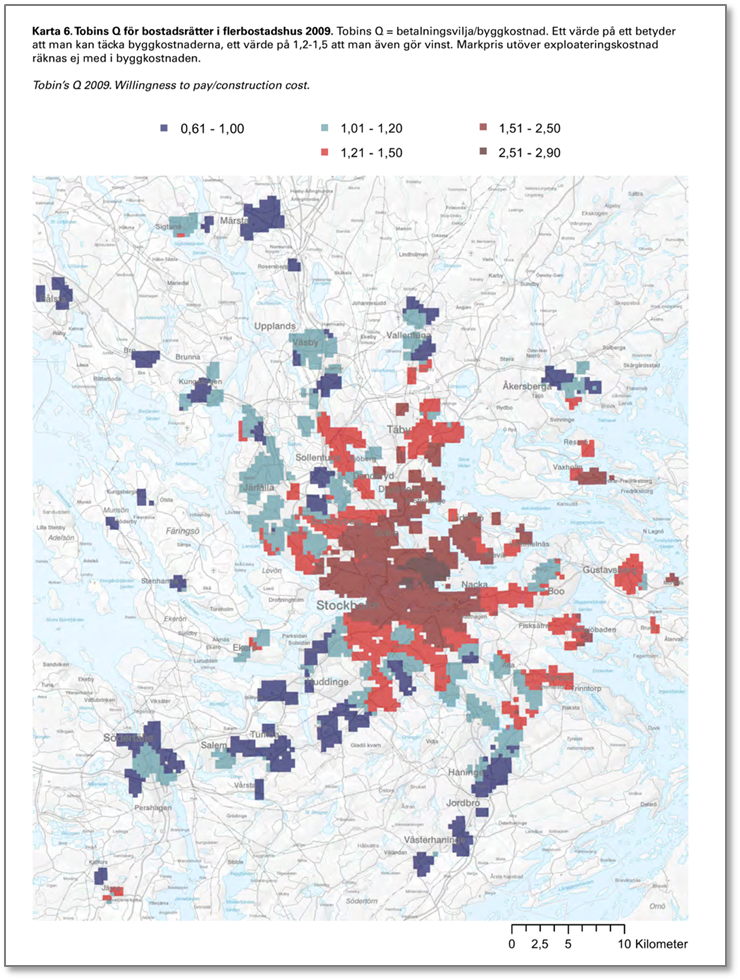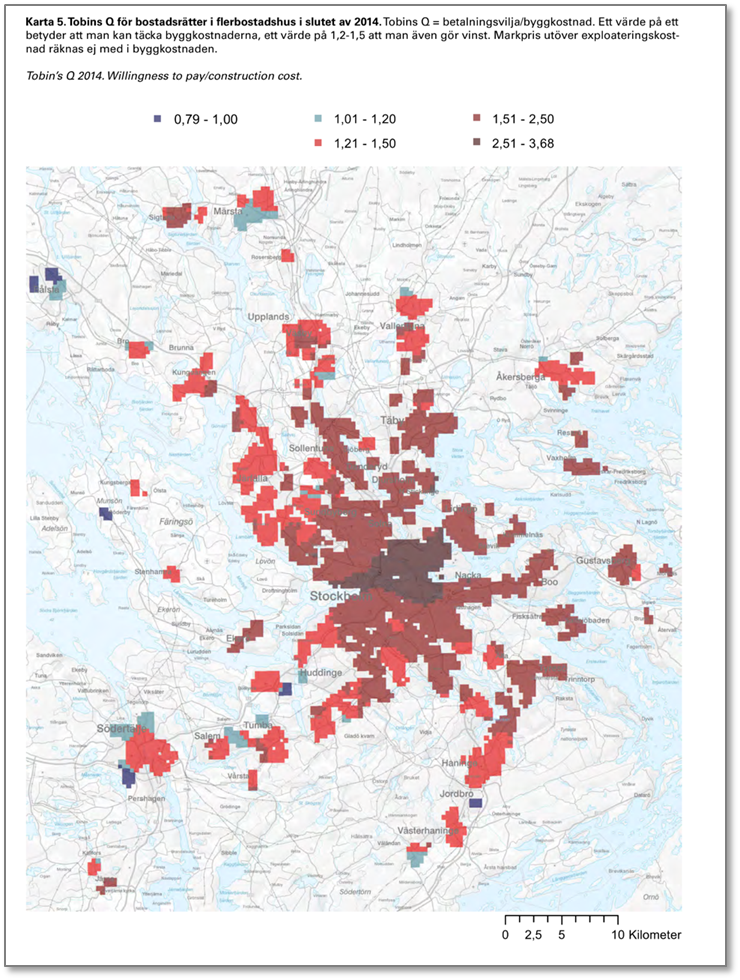Welcome to Södertörn!
The Södertörn model is a collaboration project for sustainable urban development in municipalities outside the city center of Stockholm. One strength is that it’s not a flagship development project, but a large area south of Stockholm including different municipalities with many opportunities.
Bridging the gap between theory and practice
The Södertörn model is a pioneering example of sustainable urban development in the context of the Södertörn region, and meeting complex challenges at the local and regional level.
In a report from 2015, Boverket - the swedish national board for housing, building and planning- used the index Tobin´s Q to illustrate the relation between the willingness to pay and the construction cost. Between 2009 and 2015, Södertörn has become dark red, which means highly profitable to build. However, there is no universal solution, since the needs, incomes and life standards do vary from an area to the other.
The project acts therefore as a framework for realizing visions and bridging the gap between theory and practice. Its overall aim is to develop processes, methods and tools for:
- innovative forms of collaboration between academia, public and private stakeholders
- increased community engagement in different stages of the planning process
- Knowledge-based planning and decision-making.



How
To ensure that the research and development in the Södertörns model is relevant the issues are based on real projects and needs in the municipalities through what we call Test Beds. These are the foundation of the Södertörn model.
Linked to each test bed is an Idea Group which consist of individuals from academia, municipalities and the private sector, working together in one or more test beds.
There is also a Collaboration Group that consists of all the stakeholders in the project with the purpose of identifying synergies between the idea groups. To help with this there is also a reference group with external experts connected to the project.
Explore our results (in Swedish)
Bees do not care about communal borders







